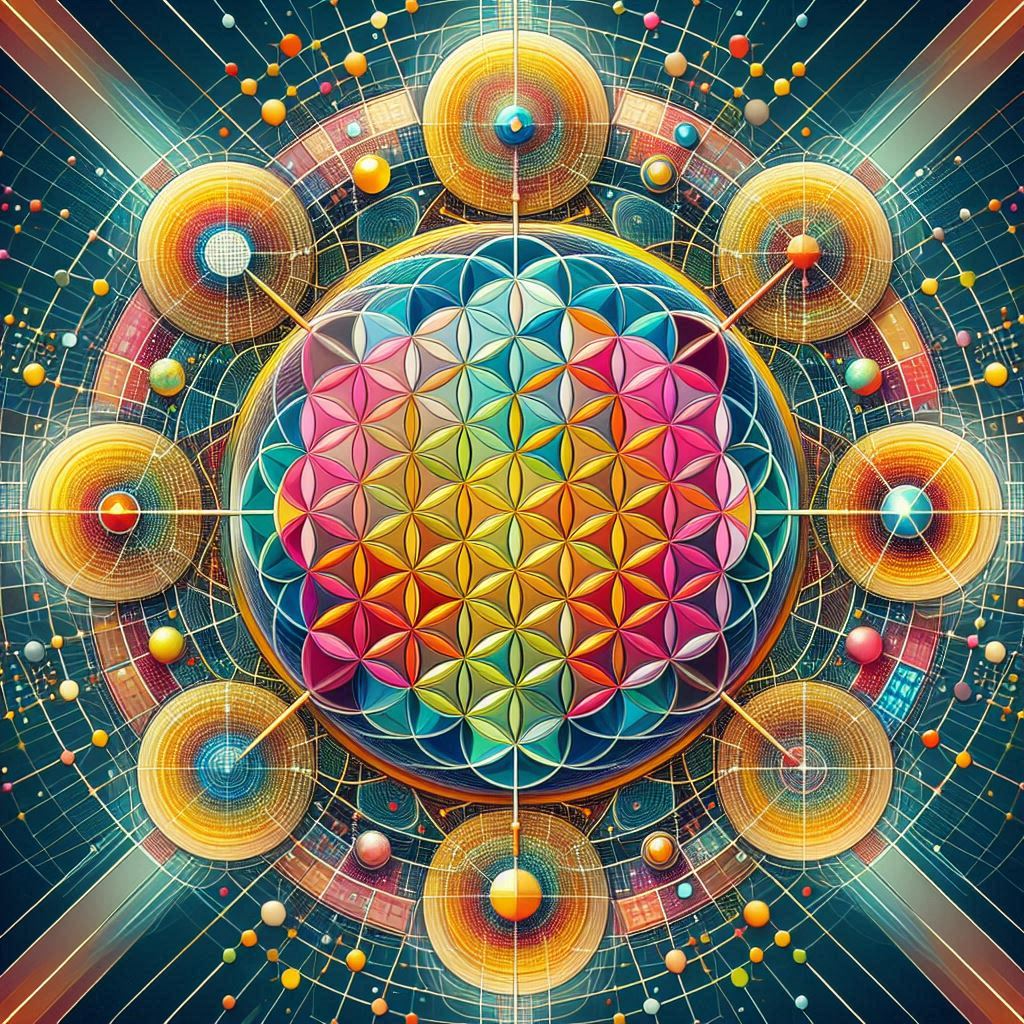Reincarnation: History, Science, Religion, and Controversies

Before diving in, please note: This post is for informational purposes only. If you’d like to know more about how we approach topics, feel free to check out our friendly Disclaimer Page.
Hey there, amazing readers! 🖐️ Just a quick note: yes, we know there are a lot of ads here. Trust us, we get it—it’s not the prettiest look, but they help us keep this blog alive and kicking. Those pesky little ads cover the costs of all the behind-the-scenes magic, from hosting and tech stuff to creating content we hope you’ll love.
We’re committed to delivering quality posts, and your support (even just sticking around despite the ads) means everything to us. So, bear with us, and thanks for helping us keep the good vibes rolling. Now, on to the fun stuff! 😉
TRANSLATE BUTTON AT THE END OF THE ARTICLE
Reincarnation is a concept that has been present in various cultures and religions for thousands of years.
It is the belief that after a person dies, their soul or consciousness is reborn into another body.
This idea is deeply rooted in spiritual and philosophical beliefs, and has been the subject of numerous debates and discussions.
In this article, we will explore the concept of reincarnation in detail, examining its history, cultural significance, scientific evidence, and various religious interpretations.
We will also examine the controversies and criticisms associated with this idea, and try to understand why it remains an enduring belief for so many people around the world.
The History of Reincarnation
The concept of reincarnation can be traced back to ancient civilizations such as Egypt, India, and Greece.
In ancient Egyptian religion, for example, it was believed that the soul of a deceased person would travel to the afterlife, where it would be judged by the god Osiris and then reincarnated into another body.
Similarly, in ancient Greek philosophy, the concept of metempsychosis, or the transmigration of the soul, was explored by philosophers such as Pythagoras and Plato.
However, it is in the Hindu and Buddhist traditions that reincarnation plays the most significant role.
In Hinduism, the belief in reincarnation, or samsara, is a central tenet of the religion.
It is believed that every living being has an immortal soul, or atman, which is reborn into a new body after death.
The cycle of reincarnation continues until the soul achieves moksha, or liberation, from the cycle of birth and death.
Similarly, in Buddhism, the concept of reincarnation, or rebirth, is closely linked to the idea of karma.
It is believed that a person’s actions in this life determine their future rebirths, with good deeds leading to a higher rebirth and bad deeds leading to a lower rebirth.
The ultimate goal of Buddhism is to achieve enlightenment, or Nirvana, which marks the end of the cycle of rebirth.
The Cultural Significance of Reincarnation
Reincarnation has played a significant role in shaping the cultural beliefs and practices of various communities around the world.
In India, for example, the belief in reincarnation is deeply ingrained in the social and religious fabric of the country.
It has influenced everything from caste-based discrimination to the practice of vegetarianism, as many Hindus believe that killing animals could harm the souls of their ancestors.
Similarly, in Tibetan Buddhism, the concept of reincarnation is closely tied to the institution of the Dalai Lama.
It is believed that the Dalai Lama is the reincarnation of a line of previous Dalai Lamas, with each new incarnation chosen by a process of divination and spiritual tests.
The Dalai Lama is considered to be both a political and spiritual leader, and his reincarnation is a matter of great importance to many Tibetans.
In the West, the concept of reincarnation has also had an impact on popular culture and literature.
The idea of past lives and reincarnation has been explored in works of fiction such as Hermann Hesse’s Siddhartha and L.
Frank Baum’s The Wizard of Oz.
It has also been the subject of numerous movies and television shows, from the classic film Heaven Can Wait to the modern-day drama The OA.
Scientific Evidence for Reincarnation
Despite its long history and cultural significance, the concept of reincarnation has been a subject of debate and controversy in scientific circles.
While there is no conclusive proof of reincarnation, some researchers have explored the possibility that it may be a real phenomenon.
One of the most famous cases of reincarnation research is that of Ian Stevenson, a psychiatrist at the University of Virginia.
Stevenson spent several decades investigating cases of children who claimed to remember past lives.
In his research, Stevenson documented over 3,000 cases of children who had detailed memories of previous lives, often in different countries and cultures than their current one.
He meticulously recorded their statements, verified the accuracy of their claims, and interviewed their families and communities to corroborate their stories.
Explore the Path to Spirituality and Enlightenment – start here.
Some of these cases included children with birthmarks or physical anomalies that corresponded with injuries or traumas from their previous lives.
Other researchers, such as Jim Tucker at the University of Virginia, have continued Stevenson’s work, collecting and analyzing cases of children with past-life memories.
While the scientific community is divided on the validity of reincarnation, these studies have brought attention to the possibility that the phenomenon may be real and worthy of further investigation.
Religious Interpretations of Reincarnation
Different religions have varying interpretations of reincarnation, often with their own unique beliefs and practices.
In Hinduism, for example, the cycle of reincarnation is closely linked to the concept of dharma, or righteous duty.
It is believed that a person’s actions in their current life will determine their caste and social standing in their next life, and that their ultimate goal is to achieve liberation from this cycle.
Similarly, in Buddhism, reincarnation is tied to the concept of karma, or the law of cause and effect.
The actions a person takes in their current life will determine their future rebirths, with the ultimate goal being to achieve enlightenment and escape the cycle of suffering.
In some indigenous religions, reincarnation is seen as a natural part of the life cycle, with spirits returning to the earth in different forms.
In some African and Native American traditions, for example, it is believed that the souls of ancestors continue to guide and protect their descendants, and may even be reborn into their family lineage.
Controversies and Criticisms of Reincarnation
Despite the widespread belief in reincarnation in many cultures, there are also criticisms and controversies surrounding the idea.
One of the main criticisms is the lack of scientific evidence to support the concept, with many scientists dismissing past-life memories as mere coincidences or the result of suggestion or imagination.
Others criticize the idea of reincarnation as being inherently unjust or oppressive, with the cycle of birth and rebirth perpetuating social and economic inequalities.
Some argue that the belief in reincarnation can lead to fatalism or complacency, with people accepting their lot in life as a result of past actions rather than striving for change.
Conclusion
The concept of reincarnation has played a significant role in shaping the beliefs and practices of numerous cultures and religions throughout history.
While there is no conclusive proof of its validity, there have been cases of past-life memories that have led some researchers to explore the possibility of reincarnation as a real phenomenon.
The interpretation of reincarnation varies between religions, but many share the goal of achieving liberation from the cycle of birth and death.
Despite criticisms and controversies, the belief in reincarnation remains an enduring and fascinating topic for many people around the world.

The Enlightenment Journey is a remarkable collection of writings authored by a distinguished group of experts in the fields of spirituality, new age, and esoteric knowledge.
This anthology features a diverse assembly of well-experienced authors who bring their profound insights and credible perspectives to the forefront.
Each contributor possesses a wealth of knowledge and wisdom, making them authorities in their respective domains.
Together, they offer readers a transformative journey into the realms of spiritual growth, self-discovery, and esoteric enlightenment.
The Enlightenment Journey is a testament to the collective expertise of these luminaries, providing readers with a rich tapestry of ideas and information to illuminate their spiritual path.
Our Diverse Expertise 🌟
While our primary focus is on spirituality and esotericism, we are equally passionate about exploring a wide range of other topics and niches 🌍📚. Our experienced team is dedicated to delivering high-quality, informative content across various subjects ✨.
To ensure we provide the most accurate and valuable insights, we collaborate with trusted experts in their respective domains 🧑🏫👩🏫. This allows us to offer well-rounded perspectives and knowledge to our readers.
Our blog originally focused on spirituality and metaphysics, but we’ve since expanded to cover a wide range of niches. Don’t worry—we continue to publish a lot of articles on spirituality! Frequently visit our blog to explore our diverse content and stay tuned for more insightful reads.







